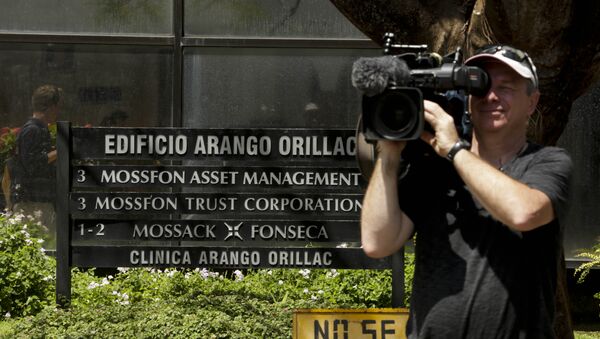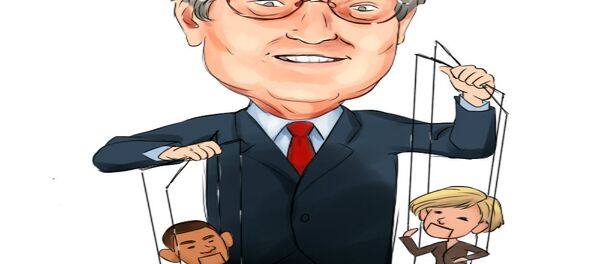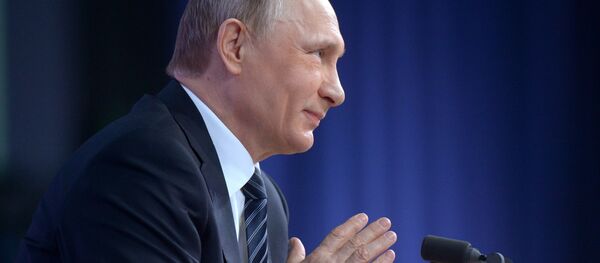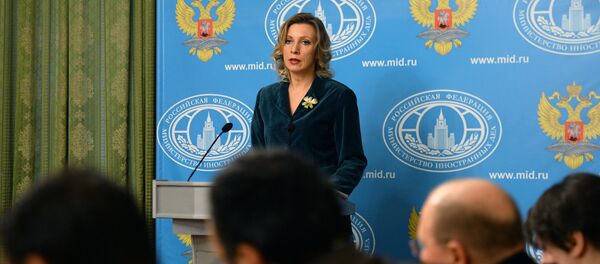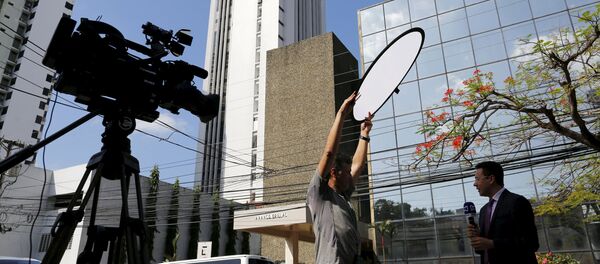Referring to the so-called “Panama Papers” offshore scandal, American investigative journalist Robert Parry noted that the accusations of corruption have long become an another tool of propaganda used for “dirtying up or delegitimizing” a foreign leader before the inevitable advent of a “color revolution” organized by “democracy-promoting” NGOs often with money from the US government’s National Endowment for Democracy or some neoliberal financier like George Soros.
The journalist further brings as an example “former Secretary of State Hillary Clinton’s millions of dollars in payments in speaking fees from wealthy special interests that knew she was a good bet to become the next US president.”
Or, similarly, he says, the millions upon millions of dollars invested in super-PACS for Clinton, Sen. Ted Cruz and other presidential hopefuls. That might look like corruption from an objective standard but is treated as just a “distasteful aspect of the US political process.”
“But imagine for a minute if Putin had been paid millions of dollars for brief speeches before powerful corporations, banks and interest groups doing business with the Kremlin. That would be held up as de facto proof of his illicit greed and corruption.”
The journalist then compares the recent smear campaign with those against former Nicaraguan President Daniel Ortega or ex-Ukrainian President Victor Yanukovich.
In both cases, the journalist says, the politicians and operatives who gained power as a result of the conflicts were arguably more corrupt than the Nicaraguan Sandinistas or Yanukovych’s government.
“The Nicaraguan Contras, whose violence helped pave the way for the 1990 election of US-backed candidate Violeta Chamorro, were deeply implicated in cocaine trafficking,” he says.
While the “US-supported Ukrainian government is wallowing in corruption so deep that it has provoked a new political crisis.”
“Ironically, one of the politicians actually named in the Panama Papers for having established a shadowy offshore account is the US-backed Ukrainian President Petro Poroshenko, although he got decidedly second-billing to the unnamed Putin,” Parry notes.
“If you’re a favored government, there might be lamentations about the need for more “reform” – which often means slashing pensions for the elderly and cutting social programs for the poor – but if you’re a demonized leader, then the only permissible answer is criminal indictment and/or “regime change,” the journalist says.
The author further elaborates that “the US government has spread around hundreds of millions of dollars to finance “journalism” organizations, train political activists and support “non-governmental organizations” that promote US policy goals inside targeted countries.”
He cites as an instance “scores of such operations” which were launched in Ukraine just before the 2014 coup, which were “financed by the National Endowment for Democracy (NED), whose budget from Congress exceeds $100 million a year.”
Apart from the NED, the author says, there is also the US Agency for International Development (USAID), which has invested a lot into “financing friendly journalists around the globe.”
“USAID, working with billionaire George Soros’s Open Society, also funds the Organized Crime and Corruption Reporting Project, which engages in “investigative journalism” that usually goes after governments that have fallen into disfavor with the United States and then are singled out for accusations of corruption,” he says.
In other words, the author states, the US government has “a robust strategy for deploying direct and indirect agents of influence.”
“Indeed, during the first Cold War, the CIA and the old US Information Agency refined the art of “information warfare,” including pioneering some of its current features like having ostensibly “independent” entities and cut-outs present US propaganda to a cynical public that would reject much of what it hears from government but may trust “citizen journalists” and “bloggers,” he concludes.

